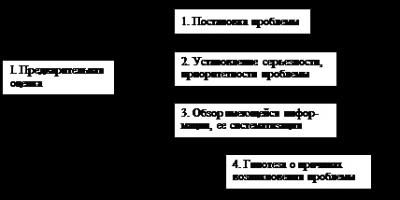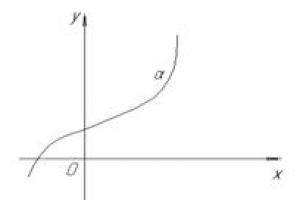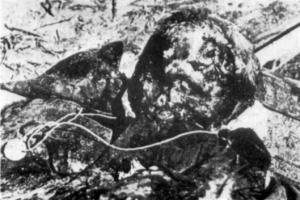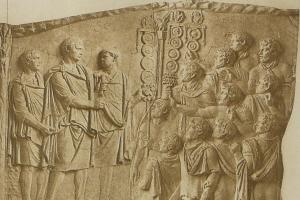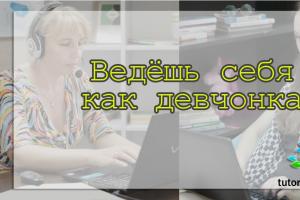The list of Russian education ministers has been replenished with a new name. This event marked a number of changes in the Ministry of Education and Science. In August 2016, a new Minister of Education of Russia was appointed.
The post was taken by O. Yu. Vasilyeva, who previously worked as deputy. Head of the Department of the Presidential Administration of the Russian Federation for Public Projects. She replaced Dmitry Livanov, who had headed the department since 2012. Livanov was entrusted with the work of the special representative of the Russian President for trade and economic relations with Ukraine.
Kremlin assessment
The new Minister of Education of Russia Olga Vasilyeva, while holding her previous position as deputy. Head of the Presidential Administration, has established herself as a highly qualified expert in matters of education and science. She maintains a constant dialogue with representatives of the professional community. As an official, she is distinguished by a particularly valuable quality - high efficiency. This is how the new appointment was commented on in a conversation with TASS journalists by the head of the Russian Presidential Administration for Public Projects, Pavel Zenkovich.

The new Minister of Education and Science of Russia is “an insider” in the scientific and pedagogical community; an excellent expert, knowledgeable about all the problems in this area from the inside, the official added.
According to P. Zenkovich, the appointment of Olga Vasilyeva to the post of minister is in a certain sense a loss for the Directorate, but at the same time an honor, since the President decided to entrust an employee of the Directorate with such important tasks.
The official reminded reporters that O. Vasilyeva began working in the Department from the very moment of its creation, i.e. 3 and a half years ago. She took upon herself the resolution of issues related to the content of the education system. Earlier in the government, O. Vasilyeva also dealt with education issues. She began her career as a school teacher. According to P. Zenkovich, Olga Vasilyeva is excellent at finding a common language with many representatives of the scientific community and higher education.

The candidacy of Olga Vasilyeva for the post of Minister of Education and Science was proposed to V. Putin by Prime Minister Dmitry Medvedev, who believed that this could intensify work in priority areas, including in the field of education. The President agreed with this proposal.

Acquaintance
O. Yu. Vasilyeva is a Russian statesman, historian, religious scholar, teacher, Doctor of Historical Sciences, professor, active state adviser of the Russian Federation, 2nd class. She became the first woman in Russian history to serve as Minister of Education and Science.
In addition, since 2002, O. Vasilyeva has headed the department of state-confessional relations at the Institute of State Social Sciences of the Russian Presidential Academy of National Economy and Public Administration, and is a professor at the Moscow University of Humanities and Economics.
Biography of the Russian Minister of Education: early years
Future minister born. 01/13/1960 in the city of Bugulma (Tatarstan) in a family of school teachers. From 1979 (after graduating from the conducting and choral department of the Institute of Culture in Moscow) to 1982, she worked as a singing teacher in capital schools.

In 1982, Olga Vasilyeva entered the Moscow State Pedagogical Institute at the evening department of the history department; in addition to her studies, she worked at Moscow school No. 91 as a history teacher. In 1987, O. Vasilyeva graduated from the institute and continued her education by enrolling in graduate school at the Institute of History of the USSR.
Scientific activity
The biography of the Russian Minister of Education O. Yu. Vasilyeva contains rich information about her scientific work. In 1990, under the scientific supervision of G. Kumanev (Institute of History of the USSR), Olga Vasilyeva defended her Ph.D. thesis. Her work was devoted to the relationship between the state and the Orthodox Church, as well as the patriotic activities of the Orthodox Church during the Second World War. The official opponents were: Ph.D. historical sciences Yu. Sharapov, V. G. Ovchinnikov. For the first time in Russian historiography, the history of the Russian Orthodox Church and the relationship between church and state in the twentieth century was described.

In 1998, O. Vasilyeva defended her doctoral dissertation on the modern history of the Russian Orthodox Church. In 1991-2002, her place of work was the Center for the History of Church and Religion (Institute of Russian History of the Russian Academy of Sciences). Here Vasilyeva O.V., starting from the position of mln. researcher, “grew up” to head of the center. In 2002, she was appointed head of the department of state-confessional relations at RANEPA (Russian Academy of National Economy and Public Administration) under the President of the Russian Federation. In 2003 she began teaching at the theological seminary on Sretenka.
In 2007, O. V. Vasilyeva completed her studies at the Diplomatic Academy of the Russian Ministry of Foreign Affairs (specialty: “international relations”).
Publications
Vasilyeva O. Yu. is the author of more than 160 scientific works. She is the supervisor of more than 25 candidate and 3 doctoral dissertations. Her research interests include the history of the Russian Orthodox Church in the twentieth century, relations between the state and the church during the USSR, problems of international relations, religious and political extremism, etc. From 1989 to 2008, she co-authored more than 90 articles. on theological topics.

In addition, Olga Vasilyeva is a member of the editorial boards of several scientific journals, chairman of the dissertation council in philosophy and anthropology, deputy. Chairman of the Dissertation Council on Theology under the President of the Russian Federation.
In public service
In February 2012, Vasiliev was appointed deputy. Director of the Government Department of Culture. In 2013, she began fulfilling her duties as deputy head of the department for public projects under the Administration of the President of the Russian Federation.
In 2014, she acted as one of the initiators of the discussion on conservatism in the All-Russian Popular Front. In subsequent years, O. V. Vasilyeva worked as a member of the council for the preparation of Russian history course programs at the Ministry of Education of the Russian Federation, the commission for religious associations, the commission for the disabled, and the council for covering religious topics in the media.
By presidential decree in September 2014, she was awarded the rank of Active State Counselor, 2nd class. In August 2016, by presidential decree, she was appointed to the post of Minister of Education.
Resonance
This appointment caused a wide resonance in society; many famous people, representatives of the scientific, pedagogical and religious communities responded to it.
Religious and public figure Protodeacon Andrei Kuraev described the new Minister of Education as a person who knows many still undiscovered pages of recent church history. In his opinion, the existing fears regarding the strengthening of clerical influence on the department after Vasilyeva’s appointment are completely groundless. Kuraev called the new minister a serious scientist. A similar assessment was given by physicist Andrei Zayakin. The scientific competence of O.V. Vasilyeva will not affect the work she will do as minister.
According to the director of the Institute of Public Service and Management, Doctor of Legal Sciences Igor Bartsits, Vasilyeva is distinguished by her ability to “hold” any audience with dignity, balance and calm, be it 17-year-old teenagers with bachelor’s degrees, students or representatives of government administrative structures.
Ministers of Education of Russia
The Ministry of Education in Russia has existed since 1990. In March 2004, by Presidential Decree, the Ministry of Education and Science of the Russian Federation was created on the basis of this department. Russia's ministers of education were appointed by the head of state and dealt with issues of providing accessible, quality education to the population. Each of the officials who held this post was distinguished by a high level of competence and desire, while in the position entrusted to him, to bring maximum benefit to his homeland. The ministers of education of Russia, taking office in different years, held it for periods of varying lengths. Their list, starting in 1990, consists of the names:
- Eduard Dneprov. Took office in 1990. He performed his duties until December 1992, when he was appointed to the position of Advisor to the President of the Russian Federation.
- Evgenia Tkachenko. He headed the ministry from December 1992 to August 1996.
- Vladimir Kinelev. He headed the department from August 1996 to February 1998.
- Alexandra Tikhonova. He remained at the head of the ministry for a minimum period of 212 days, from March to September 1998. Left his post after the resignation of the government of S. Kiriyenko.
- Vladimir Filippov. He was appointed in September 1998 and resigned in March 2004.
- Andrey Fursenko. Replaced his predecessor in March 2004. He held office longer than other Russian education ministers - as much as 2995 days, until May 2012.
- Dmitry Livanov. Came to the ministry in May 2012. In 2016, he was appointed special representative of the President of the Russian Federation for economic and trade relations with Ukraine.
His successor was Olga Vasilyeva, who took over the post in August last year.
Reformatting
Immediately after Vasilyeva’s appointment to the post in August, changes began in the Ministry of Education and Science. The new minister removed several deputies from their posts. In addition, there was a collective voluntary dismissal of an entire group of employees of the science department.
In a relatively short period, several resignations were made in Vasilyeva’s circle. Only one appointment has taken place so far: in December last year, by order of the Prime Minister of the Russian Federation, a new Deputy Minister of Education of Russia was appointed. It was Irina Kuznetsova, a teacher of chemistry and biology by profession, who has experience working in 2 large Russian publishing houses.
Political scientists explain the change of personnel in the Ministry of Education and Science in two ways. Some see what is happening as the usual process of selecting suitable employees for the new head of the department. Others believe that significant changes may occur in the ministry in relation to science.
On introducing to the State Duma a bill on issues of state accreditation of educational activities Order No. 1149-r dated June 9, 2018. The purpose of the bill is to legislate the mandatory recording of information on independent assessment of the quality of student training during state accreditation of educational activities. It is proposed to supplement the Federal Law “On Education in the Russian Federation” with a provision stipulating that the Regulations on State Accreditation of Educational Activities should establish mandatory recording of such information.May 14, 2018 The Commission on Legislative Activities approved a bill on issues of state accreditation of educational activities The purpose of the bill is to legislate the mandatory recording of information on independent assessment of the quality of student training during state accreditation of educational activities. It is proposed to supplement the Federal Law “On Education in the Russian Federation” with a provision stipulating that the Regulations on State Accreditation of Educational Activities should establish mandatory recording of such information.
April 27, 2018, Development of Crimea On additional budgetary allocations for the construction and reconstruction of the Artek International Children's Center Order No. 782-r dated April 27, 2018. From the reserve fund of the Russian Government, funds in the amount of 3.3 billion rubles are additionally allocated to finance work on landslide prevention and engineering protection of the territory of dormitories and the center for innovative educational technologies of the Solnechny children's camp at the Artek Children's Center.
April 23, 2018, Social support for certain categories of citizens On introducing to the State Duma a bill to clarify certain issues of legal regulation in the field of education Order No. 742-r dated April 23, 2018. The purpose of the bill is to bring the two legislative acts into conformity with the provisions and terminology of the Federal Law “On Education in the Russian Federation.”
April 18, 2018, Youth policy On expanding the areas of state support for public organizations in the field of youth policy Resolution of April 18, 2018 No. 467. The list of areas in which Rosmolodezh will provide subsidies to public organizations in the field of youth policy has been expanded. Starting from 2018, subsidies will be provided, among other things, to create conditions for the development of mass student sports, to implement volunteer initiatives in the field of education, physical culture and sports, healthcare, and to disseminate knowledge among the population about the prevention of socially significant diseases.
April 13, 2018 Instructions of the Ministry of Education and Science following the meeting of the Presidium of the Council under the President of the Russian Federation for Strategic Development and Priority Projects On the progress of the implementation of the priority project “Affordable additional education for children.”
April 12, 2018, Youth policy About the competition of youth projects of the North Caucasus Federal District Resolution of April 12, 2018 No. 442. Since 2011, the Stavropol Territory has hosted the All-Caucasian Youth Forum Youth Project Competition. In order to provide support to the projects of competition participants within the framework of youth forums, which are held by all subjects of the North Caucasus Federal District, the name of the competition has been changed - Competition of Youth Projects of the North Caucasus Federal District.
April 9, 2018, On changes in the procedure for developing and implementing “road maps” of the National Technology Initiative Resolution of April 3, 2018 No. 401. New instruments for financial support of projects included in the action plans (“road maps”) of the National Technology Initiative are being clarified, and the process of examination and selection of such projects is being adjusted. The solutions are aimed at expanding the circle of NTI participants and will contribute to the development of new promising markets for high-tech products.
April 9, 2018, On the implementation of projects of the National Technology Initiative Resolutions of April 3, 2018 No. 402 and No. 403. JSC "Russian Venture Company" has the functions of the NTI project office in terms of organizing the competitive selection of NTI centers, and the non-profit organization "National Technology Initiative Project Support Fund" has the functions of an operator in terms of financing NTI centers. Rules for organizing and conducting technological competitions for the purpose of implementing NTI have been approved.
April 9, 2018, Technological development. Innovation On approval of a plan to eliminate administrative barriers and legal restrictions in the implementation of the Neuronet road map Order of March 30, 2018 No. 552-r. The action plan (“road map”) to improve legislation and eliminate administrative barriers in order to ensure the implementation of the National Technology Initiative in the Neuronet direction provides for systemic regulation in the following areas: Neuropharma, Neuroassistants and Artificial Intelligence and Neuromedicine.
April 2, 2018, On budgetary allocations for the implementation of projects of the National Technology Initiative Order of March 30, 2018 No. 557-r. Funds in the amount of 9.6 billion rubles are allocated for the implementation of projects of the National Technology Initiative. These funds are provided for in the 2018 federal budget.
April 2, 2018 The Commission on Legislative Activities approved a bill to clarify certain issues of legal regulation in the field of education The purpose of the bill is to bring the two legislative acts into conformity with the provisions and terminology of the Federal Law “On Education in the Russian Federation.”
On approval of the Program of Activity of the National Research Center "Kurchatov Institute" for 2018–2022 Order of March 24, 2018 No. 502-r. The main objectives of the Program are the creation of experimental, experimental and pilot-industrial samples of new equipment and technologies that correspond to the priority directions of scientific and technological development of Russia.
March 7, 2018 Instructions from the Ministry of Education and Science following the meeting of the Government Commission on Social and Economic Development of the North Caucasus Federal District About the situation on the labor market of the North Caucasus Federal District.
1According to the above document, from May 15, 2018, the Ministry of Education and Science is divided into 3 separate departments:
- Ministry of Education of the Russian Federation
- Ministry of Science and Higher Education of the Russian Federation
- Rosobrnadzor
History of divisions and mergers of the Ministries of Education in Russia?
- 1946: It is necessary to focus on the very name of the future ministry. In the history of Russia, the department dealing with education issues was called the “Ministry of Education” 2 times: in tsarist Russia (Ministry of Public Education - since 1802, in Soviet Russia (Ministry of Education of the RSFSR) - since 1946.
- 1988: In 1988, the Ministry of Education of the RSFSR appeared in Russia. For this purpose, two departments were united: the RSFSR State Committee for Vocational Education and the RSFSR Ministry of Education.
- From 1988 to 1996 in Russia, the Ministry of Education of the RSFSR, and then the Russian Federation, was responsible for primary and secondary (including secondary specialized and vocational) education in the Russian Federation.
- The Ministry of Science, Higher Education and Technical Policy of the Russian Federation (and then the State Committee of the Russian Federation for Higher Education) was responsible for higher and postgraduate education and science.
- 1996: From 1996 to 1999 - Ministry of General and Professional Education of the Russian Federation
- year 2000: From 2000 to 2015 - Ministry of Education of the Russian Federation (Ministry of Education and Science)
Division of the USSR education sector into several departments
As for the division of departments at the all-Union level, the education sector of the USSR was supervised by 3 separate departments:
- Ministry of Higher and Secondary Special Education (Ministry of Higher Education) of the USSR,
- Ministry of Education of the USSR,
- Ministry of Vocational and Technical Education of the USSR.
What will the Ministry of Education do?
From May 15, 2018, the new Ministry of Education will implement state policy and legal regulation in the areas of:
- general education,
- secondary vocational education
- vocational training,
- additional education for children and adults,
- education.
According to preliminary information, the post of Minister of Education will be taken by former Minister of Education Olga Vasilyeva.
What will the Ministry of Science and Higher Education of the Russian Federation do?
Functions for the development and implementation of state policy and legal regulation in the field of
- higher education,
- relevant additional professional education,
- scientific, scientific-technical and innovative activities,
- nanotechnology,
- development of federal centers of science and high technology,
- state scientific centers and science cities.
Ministry of Education through the prism of history
Before the revolution in Tsarist Russia, the Ministry of Education was headed by 29 ministers.
After the revolution, the People's Commissariat of Education was created, headed by the people's commissars:
- 1917 – 1929 : Lunacharsky Anatoly Vasilyevich, the only one from the government who held office for 12 years, founder of the journal “Bulletin of Education”.
- 1929 – 1937 : Bubnov Andrey Sergeevich, introduced universal primary education, executed in 1938.
- 1937 – 1940 : Tyurkin Petr Andreevich, holder of the Order of the Red Banner, arrested in the “Leningrad case” and posthumously rehabilitated in 1954.
- 1940 – 1946: Potemkin Vladimir Petrovich, professor of history, organizer of the Academy of Pedagogical Sciences of the RSFSR.
Since 1946, the People's Commissariat for Education was reorganized into the Ministry of Education.
- 1946 - 1947 : Kalashnikov Alexey Georgievich, Doctor of Physical and Mathematical Sciences, Professor.
- 1947 – 1949 : Voznesensky Alexander Alekseevich, academician, rector of Leningrad University, shot in 1950 in connection with the “Leningrad case”. Rehabilitated in 1954
- 1949 – 1956 : Kairov Ivan Andreevich, President of the Academy of Pedagogical Sciences.
- 1956 – 1967 : Afanasenko Evgeniy Ivanovich, was a supporter of anti-academicism, which led to a decrease in the quality of education.
- 1967 – 1980 : Danilov Alexander Ivanovich, the transition to universal secondary education has been completed.
- 1980 – 1990 : Veselov Georgy Petrovich, variable curricula have been introduced.
After the collapse of the USSR, the Ministry of Education became known as the Ministry of General and Professional Education of the Russian Federation. Since 2000 – Ministry of Education and Science (Ministry of Education and Science of Russia).
- 1990 – 1992 : Dneprov Eduard Dmitrievich , the first Minister of Education of modern Russia. Academician of the Russian Academy of Sciences.
- 1992 – 1996 : Evgeniy Viktorovich Tkachenko, sought to return Russian science to the international stage.
- 1996 – 1998 : Kinelev Vladimir Georgievich, Doctor of Technical Sciences, one of the founding fathers of distance learning in Russia.
- 1998 Tikhonov Alexander Nikolaevich, initiator of the development of Russian scientific and educational networks included in the Internet - RunNet, RBNet, Relarn-IP, etc. One of the first ideologists of distance education in Russia.
- 1998-2004 : Filippov Vladimir Mikhailovich, Doctor of Physical and Mathematical Sciences, Professor. Implemented a computerization program for rural schools.
- 2004 – 2012 : Fursenko Andrey Aleksandrovich, transferred the higher school to the principles of the Bologna system (bachelor's and master's degrees), the Unified State Exam was introduced.
- 2012 -2016 : Livanov Dmitry Viktorovich, Doctor of Physical and Mathematical Sciences, reformed the Russian Academy of Sciences, united universities, initiated investigations into “fake” dissertations among officials.
- 2016 – 2018 : Olga Yuryevna Vasilyeva, Doctor of Historical Sciences, the first woman Minister of Education, if you don’t count Nadezhda Konstantinovna Krupskaya, who was not officially the People’s Commissar of Education, but actually led educational policy in the country.
WITH In 2018, the Ministry of Education and Science of the Russian Federation was divided into 2 main departments:
The former head of the department, Olga Yuryevna Vasilyeva, was appointed Minister of Education.
Mikhail Mikhailovich Kotyukov, former head of the Federal Agency for Scientific Organizations, was appointed Minister of Science and Higher Education. In the past, Kotyukov M.M. held positions such as Vice-Rector for Economics and Finance of the Siberian Federal University, Head of the Department of Finance of the Krasnoyarsk Territory, Minister of Finance of the Krasnoyarsk Territory, Deputy Minister of Finance A. Siluanova.
The government has submitted bills to the State Duma on improving the procedure for conducting a comprehensive exam in the Russian language for foreign citizens Orders of September 18, 2019 No. 2084-r, No. 2085-r. The adoption of bills will make it possible to ensure uniform approaches to the procedure for conducting a comprehensive exam in Russia and abroad, improve the quality of its implementation, more effectively monitor and supervise the activities of educational organizations during the examination, and eliminate the risks of possible falsification of certificates.September 11, 2019, Road transport. Road safety On decisions based on the results of the meeting of the Government Commission on Ensuring Road Safety On increasing the protection of children from road accidents and their consequences.
September 7, 2019 Awarded the Russian Government Prize in the field of education for 2019 Order No. 1944-r dated August 31, 2019. 10 applicants became award winners in 2019. The prizes were awarded for the development of a digital educational complex in theoretical and engineering mechanics, textbooks and scientific and practical manuals on geotechnics, as well as for educational and scientific publications in the field of modern information, measuring and control radio-electronic systems.
September 7, 2019, The size of Russian Government awards in the field of science and technology for young scientists has been increased Resolution of August 31, 2019 No. 1121. Since 2020, the amount of the monetary part of the Russian Government awards in the field of science and technology for young scientists has been increased from 500 thousand rubles to 1 million rubles.
August 23, 2019, State policy in the field of scientific research and development Indicators for the implementation of the Strategy for Scientific and Technological Development have been established, the dynamics of which are subject to monitoring Order of August 15, 2019 No. 1824-r. 11 indicators have been identified that reflect the progress of implementation of the Strategy in the following areas: the influence of science and technology on the socio-economic development of Russia, including due to the transition to the model of great challenges; the state and performance of the field of science, technology and innovation; quality of state regulation and service provision of scientific, scientific, technical and innovative activities.
August 23, 2019, Social innovation. Non-profit organizations. Volunteering and volunteering. Charity Rules for the functioning of a unified information system in the field of volunteer development were approved Resolution of August 17, 2019 No. 1067. The decisions made are aimed at providing information and analytical support for volunteer activities and will allow the formation of a single platform for interaction between institutions of volunteer activity.
1Order of the Ministry of Education of Russia dated March 29, 2019 No. 178 “On determining the list of priority areas for updating skills and acquiring competencies by citizens, taking into account regional and industry needs for 2019.”
Order of the Ministry of Education and Science of Russia dated April 15, 2019 N 30n “On approval of indicators characterizing the general criteria for assessing the quality of the conditions for carrying out educational activities by organizations carrying out educational activities in educational programs of higher education” (Registered with the Ministry of Justice of Russia on June 28, 2019 N 55078)
Order of the Ministry of Education and Science of Russia dated 07/09/2019 N 55n "On approval of the Regulations on the Council of the Ministry of Science and Higher Education of the Russian Federation on federal state educational standards of higher education (Registered with the Ministry of Justice of Russia on 07/18/2019 N 55300)
Order of the Ministry of Education and Science of Russia dated March 22, 2019 N 21n “On approval of the Procedure for the formation and functioning of innovative infrastructure in the education system (Registered with the Ministry of Justice of Russia on August 9, 2019 N 55531)
Order of the Ministry of Education and Science of Russia dated October 16, 2018 N 48n “On approval of the list of branches of science within which scientific organizations and educational organizations of higher education included in the list approved by the Government of the Russian Federation in accordance with paragraph six of paragraph 3.1 of Article 4 of the Federal Law “On Science and State Scientific Research” -technical policy" list, the rights provided for in paragraphs two - four of clause 3.1 of article 4 of the said Federal Law are granted" (Registered with the Ministry of Justice of Russia on October 29, 2018 N 52552)
Order of the Ministry of Education and Science of Russia dated October 5, 2017 No. 1002 “On approval of the list of Olympiads and other intellectual and (or) creative competitions, events aimed at developing intellectual and creative abilities, abilities for physical education and sports, interest in science research), engineering, technical, inventive, creative, physical education and sports activities, as well as for the promotion of scientific knowledge, creative and sports achievements, for the 2017/18 academic year"
Order of the Ministry of Education and Science of the Russian Federation dated August 23, 2017 No. 816 “On approval of the Procedure for the use of e-learning and distance learning technologies by organizations engaged in educational activities in the implementation of educational programs”
Order of the Ministry of Education and Science of the Russian Federation dated April 5, 2017 No. 301 “On approval of the Procedure for organizing and implementing educational activities in educational programs of higher education - undergraduate programs, specialty programs, master’s programs”
Order of the Ministry of Education and Science of Russia dated February 10, 2017 No. 124 “On approval of the Procedure for transferring students to another organization carrying out educational activities in educational programs of secondary vocational and (or) higher education”
Order of the Ministry of Education and Science of Russia dated February 13, 2017 No. 129 "On introducing changes to the methodology for calculating indicators for monitoring the education system, approved by Order of the Ministry of Education and Science of the Russian Federation dated June 11, 2014 No. 657""
Order of the Ministry of Education and Science of Russia dated January 12, 2017 No. 13 "On approval of the Procedure for admission to study in educational programs of higher education - programs for training scientific and pedagogical personnel in graduate school"
Order of the Ministry of Education and Science of Russia dated January 17, 2017 No. 24 “On approval of the forms of the report on the accreditation examination and the conclusion of experts and (or) representatives of expert organizations drawn up based on the results of the accreditation examination”
Order of the Ministry of Education and Science of Russia dated December 30, 2016 No. 1683 “On the Plan of Control and Audit Activities of the Ministry of Education and Science of the Russian Federation for 2017” signed by the Minister of Education and Science O.Yu. Vasilyeva
Order of the Ministry of Education and Science of Russia dated January 30, 2017 No. 81 “On approval of the total volumes of admission target figures for professions, specialties and (or) enlarged groups of professions, specialties for training in educational programs of secondary vocational education at the expense of budgetary allocations from the federal budget for 2018/19 academic year" signed by the Minister of Education and Science O.Yu. Vasilyeva
Order of the Ministry of Education and Science of Russia dated December 8, 2016 No. 1538 “On amendments to the Administrative Regulations for the provision of public services for confirming documents on academic degrees, academic titles by government bodies of the constituent entities of the Russian Federation exercising the delegated powers of the Russian Federation to confirm documents on academic degrees, academic titles ranks, approved by order of the Ministry of Education and Science of the Russian Federation dated December 26, 2014 No. 1630"
Order of the Ministry of Education and Science of Russia dated November 9, 2016 No. 1385 “On approval of lists of documents and materials required for conducting an on-site (without on-site) accreditation examination to an organization carrying out educational activities or its branch”
Order of the Ministry of Education and Science of Russia dated November 29, 2016 No. 1487 “On amendments to the Procedure for filling out, recording and issuing documents on higher education and qualifications and their duplicates, approved by Order of the Ministry of Education and Science of the Russian Federation dated February 13, 2014 No. 112”
Order of the Ministry of Education and Science of Russia dated December 26 No. 1651 “On invalidating certain orders of the Ministry of Education of the Russian Federation and the Ministry of Education and Science of the Russian Federation concerning the formation of the library collection of educational organizations of higher education”
Order of the Ministry of Education and Science of Russia dated December 1, 2016 No. 1508 “On amendments to the lists of specialties and areas of training in higher education, approved by order of the Ministry of Education and Science of the Russian Federation dated September 12, 2013 No. 1061”
Order of the Ministry of Education and Science of Russia dated November 30, 2015 No. 1387 "On amendments to the Procedure for admission to higher education educational programs - bachelor's degree programs, specialty programs, master's programs, approved by order of the Ministry of Education and Science of the Russian Federation dated October 14, 2015 No. 1147" signed by the Minister of Education D.V. Livanova
Order of the Ministry of Education and Science of Russia dated January 27, 2016 No. 40 “On approval of the total volumes of admission target figures for specialties and areas of training and (or) enlarged groups of specialties and areas of training for training in educational programs of higher education at the expense of budgetary allocations from the federal budget for 2017/ 18 academic year” signed by the Minister of Education D.V. Livanova

